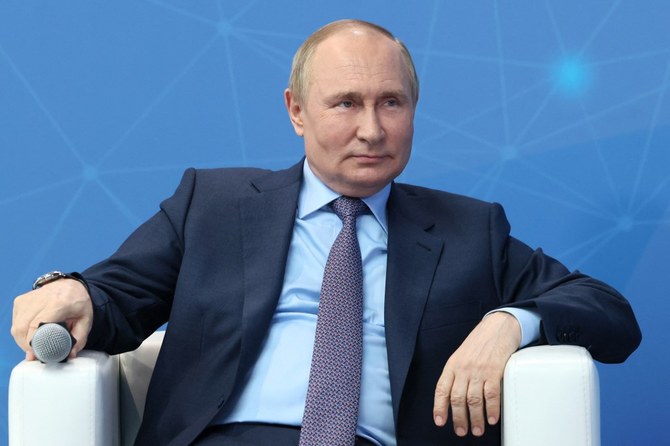Intro: IN CONTEXT
Back in April
Jared Kushner Flaunted His Influence With Saudi Arabia, Russia in Pitch to Investors
Affinity Partners boasts of “accelerating transformation through connectivity” in a slide deck obtained by The Intercept.

Jared Kushner’s new investment fund, Affinity Partners, nakedly touts the former Trump adviser’s work with Saudi Arabia and his links to several Trump-era deals in the hope of raising money from Wall Street, according to a slide deck for the fund dated from December. Last week, the New York Times reported that Kushner, Donald Trump’s son-in-law, won a $2 billion investment from Saudi Crown Prince Mohammed bin Salman’s investment fund for his own venture, just six months after he departed the White House.
The slide deck confirms the fund’s reliance on Kushner’s government experience and connections, particularly with regard to Saudi Arabia, to gin up business. The pitch to U.S. investors prominently advertises the team’s experience in the Trump White House, including on the Abraham Accords — a series of agreements that normalized formal diplomatic relations between Israel and some Arab countries — and a key oil production agreement reached with OPEC+, the oil cartel led by Russia and Saudi Arabia. “Aligned economic interests can solve intractable problems and create previously unrealized value,” reads one slide in the deck, which is marked “confidential.”
“Affinity’s unique network and experience makes us a differentiated partner for companies navigating the rapidly evolving global political and economic environment,” reads another. Affinity’s “value add” is depicted as a two-way arrow between “strategic partners/investors” and “target companies/operating businesses.”

The slides describe Kushner as “leading the negotiations on the historic OPEC+ oil agreement in April 2020 among the United States, Saudi Arabia, and Russia, which led to the largest oil production reductions in history as the Covid-19 economic crisis shocked global demand for the commodity.” Beyond smacking of revolving door politics, the reference to the agreement seems to hint at Kushner’s influence with the oil-rich Saudi kingdom. He traveled to the region earlier this year, meeting with Crown Prince Mohammed as well as the CEO of Aramco, Saudi’s national oil company.
It also contrasts sharply with U.S.-Saudi relations under President Joe Biden, who amid skyrocketing gas prices has repeatedly asked Riyadh to increase oil production to no avail. Saudi-Russia collusion to keep the global oil supply low has sent U.S. gas prices soaring to their highest levels in years, as the Intercept has previously reported. This has generated a bonanza of profits for Russia during its costly invasion of Ukraine, as well as punishing inflationary pressures in the U.S. Despite repeated entreaties from Biden for the Saudis to increase oil production, they’ve refused to budge. That’s unlikely to change. “Saudi has been very clear that it’s not increasing production,” Ellen Wald, a nonresident senior fellow at the Atlantic Council, told The Intercept. Riyadh wasn’t always so intransigent. In two election years — 2018 and 2020 — Saudi Arabia complied with then-President Donald Trump’s requests to increase and decrease production, respectively. . .
A source in contact with multiple U.S. investors approached by Affinity said the investors were not attracted by the presentation and described their shock at how cavalierly it seemed to suggest influence peddling, a “value add” often handled with more subtlety in the investment world. “They said they’d never seen such a joke of a deck, openly talking about ‘networking’ and ‘networks’ — i.e., our corrupt insider contacts,” the source said on condition of anonymity to describe private discussions. “They’re bragging about ‘networks,’ they’re using cliches, with no serious investment discussion.”

Prior to the Saudi investment in Affinity, the Times reported, officials in the kingdom raised concerns about Affinity’s lack of experience in private equity, and the unsatisfactory results of due diligence reviews. They were also curious as to why the company didn’t yet have U.S. investors, which Saudi staff wrote was because “The Affinity principal would like to avoid media attention at this time.” According to the Times, documents “indicate that at this point Mr. Kushner’s venture depends primarily on the Saudi money.”
RELATED......................................................................................................................................
Biden’s Top Middle East Adviser ‘Torched The House And Showed Up With A Firehose’
Brett McGurk has worked on MidEast issues since 2004. Now he's more powerful than ever under President Joe Biden — and insiders worry he's relying on a failed playbook.

President Joe Biden is about to make his biggest statement yet about America’s role in the Middle East — one that will disappoint many of his supporters and affirm that while presidents come and go, Washington’s often self-defeating approach to the region persists.
Ahead of Biden’s first presidential trip to the region this summer, his aides are finalizing a set of documents that one U.S. official who viewed the package summed up as “a recitation of every establishment view.”
Perhaps no one better reflects the national security establishment than the architect of Biden’s approach: Brett McGurk, the White House coordinator for the Middle East and North Africa.
As one of the few Washington operators who can boast of serving four successive presidents — both Republicans and Democrats — the 49-year-old McGurk is now more powerful than ever. And his personality, views and relationships are guiding American policy in a region where the U.S. has often made deadly, destabilizing mistakes, particularly over the almost 20 years during which McGurk has climbed up the ranks of government.
McGurk’s emphasis is on stability: He believes the U.S. should shore up local regimes, warts and all, as partners against threats like militancy, Iran’s nuclear capabilities and disruptions to global trade.
That view has largely guided America’s approach for decades. But today, many experienced analysts — including Biden’s own advisers — are questioning that tired strategy. They say it can convince Middle Eastern dictators they have unconditional support from Washington, and can blind the U.S. to the costs and the shakiness of authoritarian rule. . .
In interactions with congressional staffers this spring, for instance, McGurk’s team privately pushed back on a letter from 30 Democratic lawmakers urging “a serious reassessment of the U.S.-Saudi relationship,” according to a source familiar with the incident.
HuffPost presented all these criticisms to McGurk, who forcefully rebutted them in a phone call but declined to let his responses be used on the record. . .
Middle East, McGurk-Style
McGurk presents himself as humbled by U.S. overreach in the Middle East. Biden will not pursue “maximalist” American goals like past presidents he served, McGurk told The National last year.
In practice, Biden is behaving much like Obama and Trump: providing largely unchecked support to local autocrats and often letting their concerns drive decisions. McGurk’s bet is that a soft approach will create a foundation for a sustainable, ultimately beneficial U.S. regional policy. But skeptics note that by avoiding tough conversations with MidEast partners in the past, particularly about their domestic repression, the U.S. has ultimately faced crisis after crisis.

Consider U.S.-Saudi relations.
After Biden’s initial critiques of the kingdom, his administration has spent months courting de facto Saudi ruler Crown Prince Mohammed bin Salman, shipping him fresh weapons and repeatedly sending McGurk and other top officials to Riyadh. The prince, known as MBS, refused to speak with Biden this spring when he sought help with the oil market, according to Wall Street Journal reporting, and his allies say the trouble is Biden — not the prince’s erratic record, including his role in the killing of Jamal Khashoggi. (Notably, recent White House readouts of interactions with top Saudi officials did not even mention the murdered journalist.)
Now, the Biden administration is planning a summer meeting between the president and MBS, two sources familiar with the discussions told HuffPost.
[ ] “Biden promised accountability. Then there was no accountability and the excuse was, ‘It’s so they’ll help us when we need them,’” said one observer of the relationship. “Then comes a moment of need, where the Saudis didn’t help when the U.S. asked for more oil. How do you rectify your failure? A failed appeasement policy will not be fixed with more appeasement.”
Policymakers wary of McGurk’s drive for a reconciliation worry that other core concerns will be overlooked.“McGurk is the person Middle East autocrats turn to when they want a pliant ear.”
Saudi Arabia cuts oil flows to China despite OPEC+ pledge to accelerate production
RIYADH: Saudi Arabia will provide some Chinese buyers with less crude than they asked for next month, despite a pledge by the Organization of the Petroleum Exporting Countries and its allies, known as OPEC+, to speed up production.
Saudi oil giant Aramco normally does not provide buyers a reason why volumes are cut, according to Bloomberg, which added that Aramco did not immediately reply to an email seeking comment on the matter.
While Chinese buyers are facing a shortfall, those in Japan, South Korea, Thailand and India will get the oil volumes they had sought, with some even getting extra supplies, Bloomberg reported, citing refinery officials who asked not to be identified for information privacy.
Looking for alternatives to Russian products, many Asian buyers asked Aramco for more oil this week, during the so-called nomination process.
Buyers are still finding Saudi cargoes more affordable than supplies from the North Sea and the US, despite a higher-than-expected increase in prices from the Kingdom.
China and India are big buyers of Russian crudes, even after Moscow’s invasion of Ukraine.

RIYADH: Construction firm China Railway 18th Bureau Group Co. has been awarded a $974 million contract to build five kilometers of tunnels in the Saudi Arabian city of Madinah.
The project also involves the construction of a pedestrian bridge, according to MEED.
Al-Amida road will serve as an alternative to the current ring road, through expanding the roadway to six lanes, upgrading the Ali Bin Abi Taleb traffic tunnel and connecting Al-Amida to the King Faisal ring road.
Canada’s WSP and US-based Parsons are among consultants working on the project while Rua al-Madinah Holding is the client, MEED said.
Saudi Arabia also witnessed a tunneling project in NEOM, in June, with contracts being awarded for the bored tunneling sections of The Line.

RIYADH: Russian companies should not start “concreting over their oil-wells” according to Vladimir Putin as he predicted the West will rely on energy from his country for many years.
As the EU currently imports around 40 percent of its gas from Russia, the bloc has pledged to reduce its dependency on Russian oil by 90 percent by the end of 2022. . .



No comments:
Post a Comment